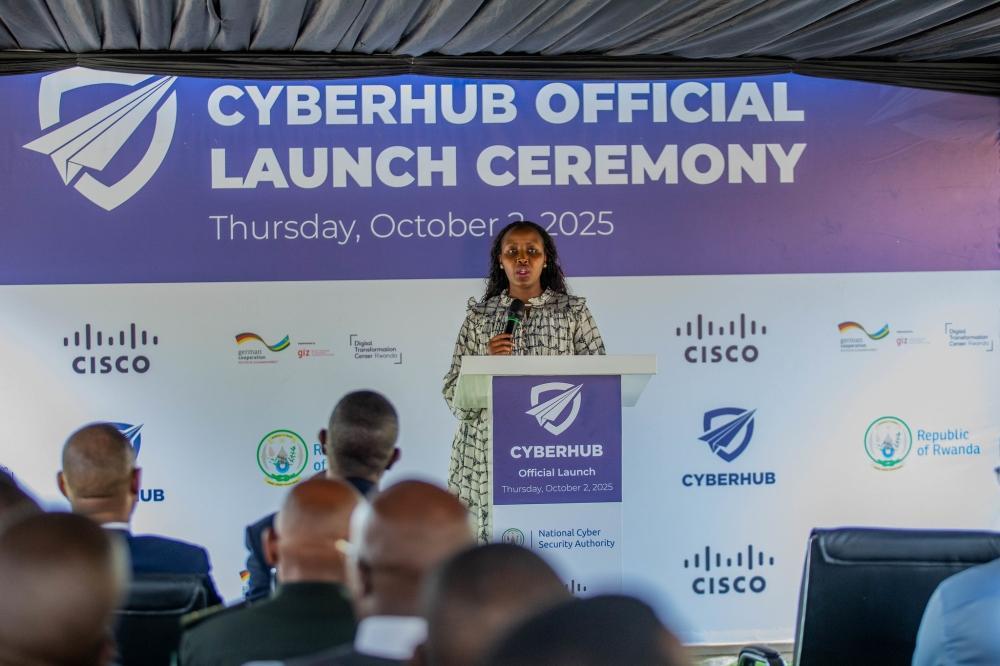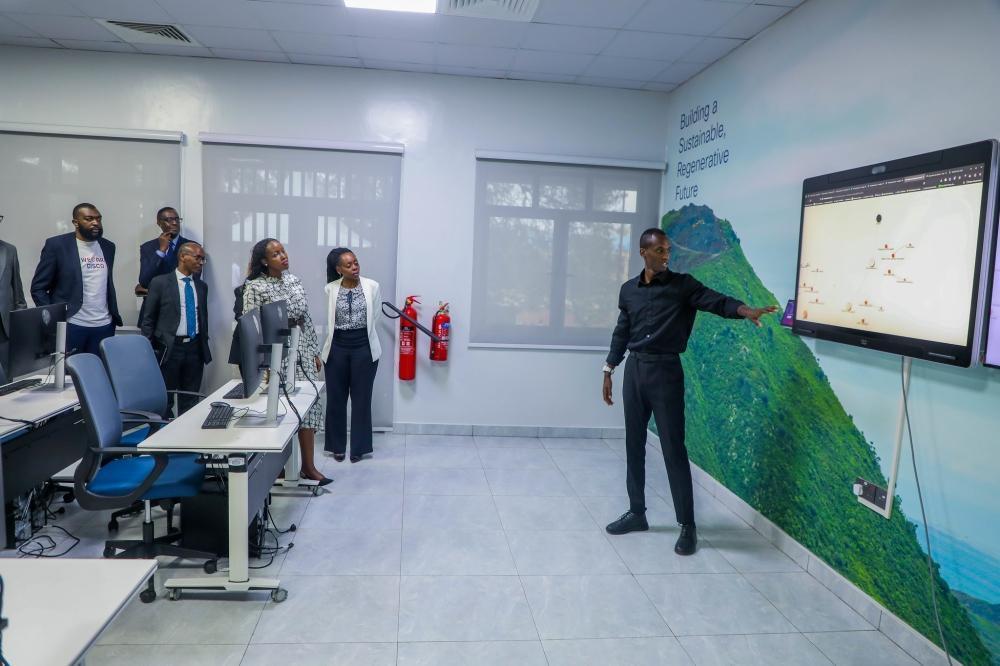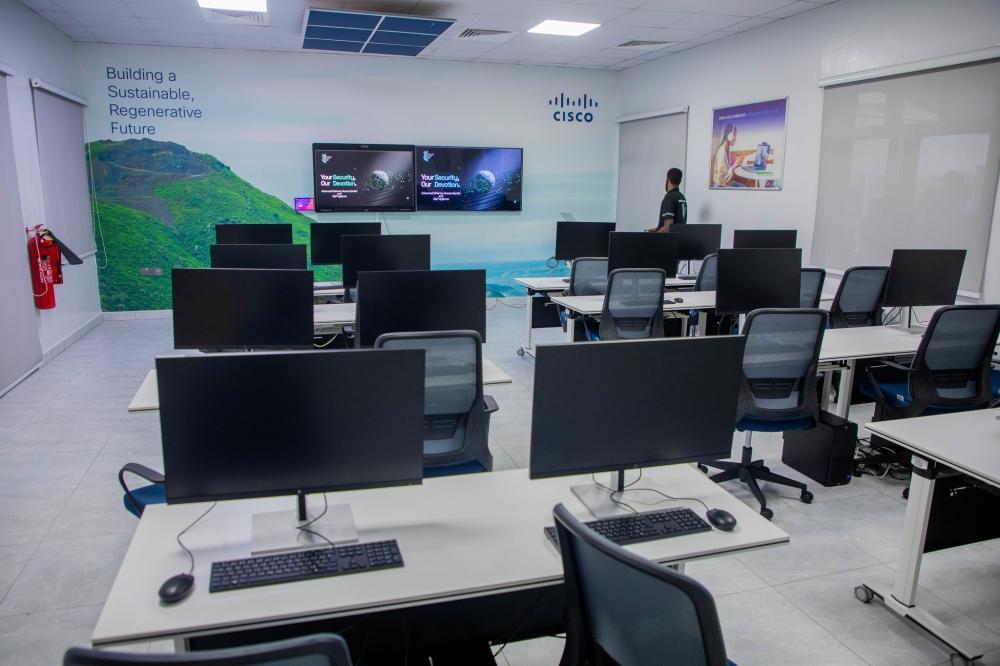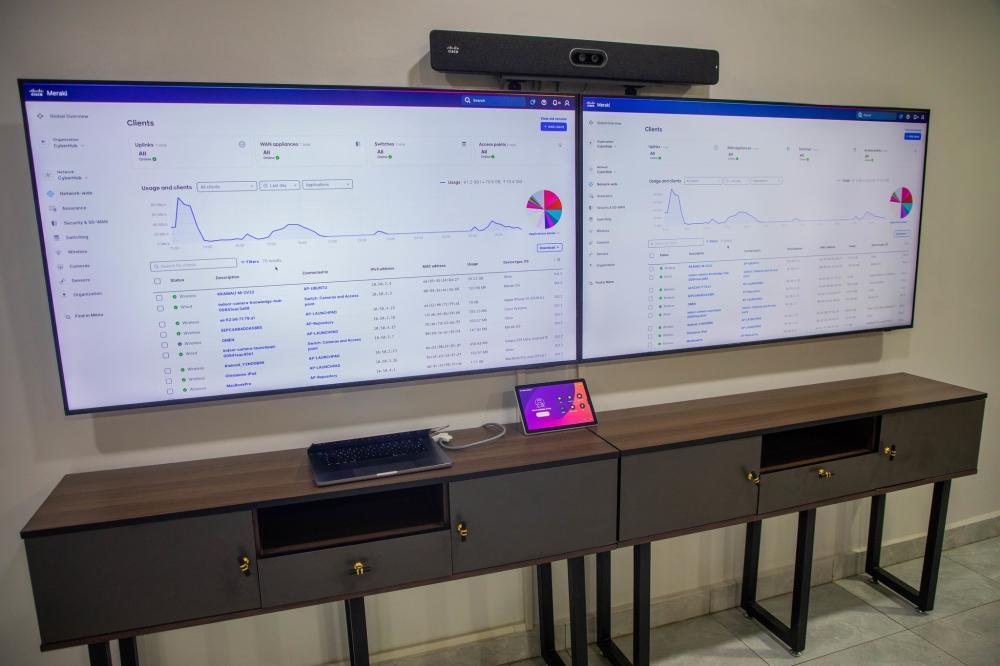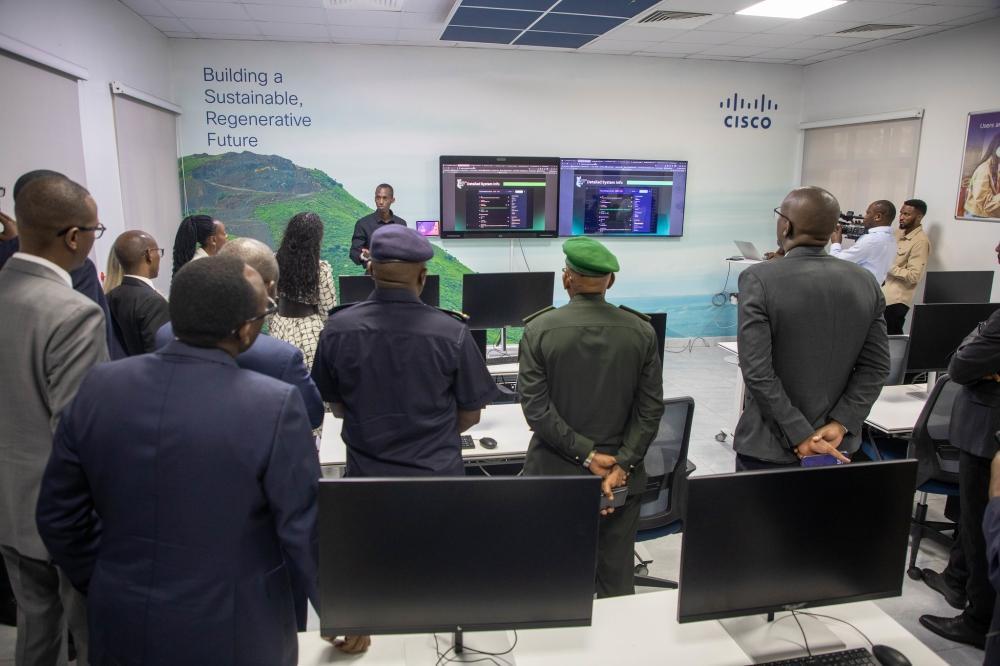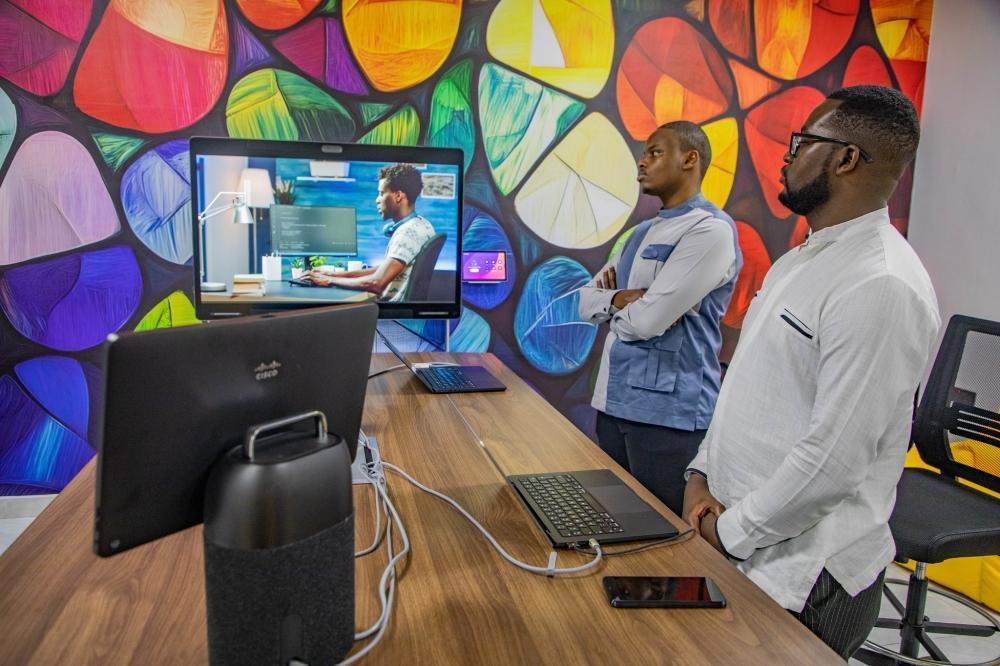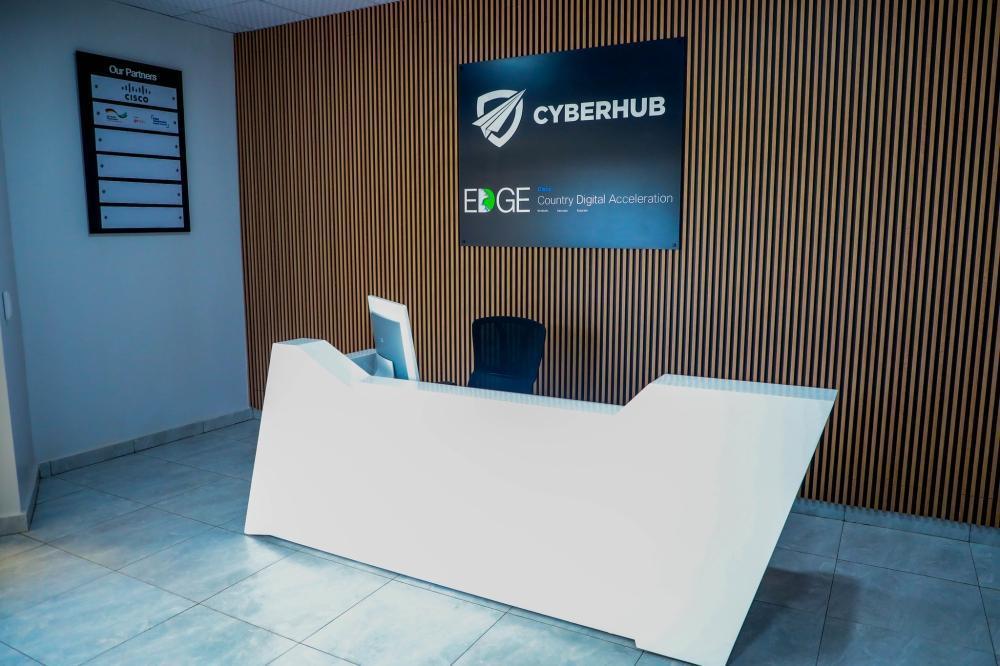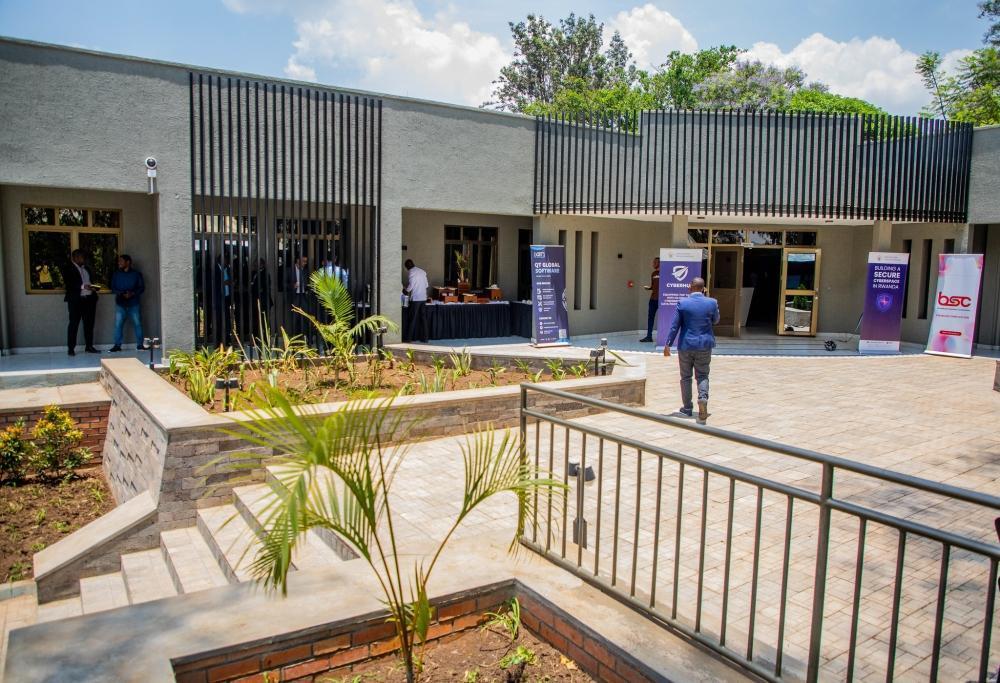Africa-Press – Rwanda. A national centre of excellence in cybersecurity and data protection was launched in Kigali on Thursday, October 2. Government officials and partners called it a milestone in building the country’s talent pool and strengthening resilience against growing digital threats.
The CyberHub, which is hosted at University of Rwanda’s College of Science and Technology, is equipped with high-functioning computers provided by Cisco, an American multinational corporation, and other partners. It will serve as both a training ground and an innovation space for the next generation of cybersecurity professionals.
Minister Paula Ingabire and other officials during a guided tour of the newly launched centre
Speaking at the launch, Paula Ingabire, the Minister of ICT and Innovation, said the CyberHub represents more than defence against cyber risks.
“When we invest in cybersecurity, it’s not just about defence. We are creating jobs, we are creating services, we are creating startups,” Ingabire said. “Our metrics will not be how many people we train. Our metrics will be how the industry is growing, and how resilient our systems are.”
Last month, the government rolled out a flagship initiative dubbed “Positioning Rwanda as a Regional Digital Entrepreneurship Hub” which will empower local startups and entrepreneurship support organizations (ESOs) with strategic guidance and funding.
The CyberHub, which is hosted at University of Rwanda’s College of Science and Technology, is equipped with high-functioning computers provided by Cisco, an American multinational corporation, and other partners.
Why it matters
As cyber threats become more complex, officials and partners agreed that CyberHub will not only strengthen Rwanda’s defences but also unlock opportunities in a growing global industry.
“This is not something we’re building just for the government,” Ingabire said. “It’s for the private sector, academia, and entrepreneurs who can turn skills into thriving businesses.”
Ingabire stressed that people remain the weakest link in digital security, underscoring the hub’s focus on human capital. Rwanda plans to train 200 specialists through the centre in the short term, while also working toward broader national targets, including 500,000 ICT professionals within five years.
A delegate from Cisco, the lead technology partner, described the CyberHub as one of their flagship projects under its global Country Digital Acceleration programme.
“At Cisco, we believe in the power of technology to connect, secure, and transform lives,” said Dima Kandelhaft, Senior Director. “This hub will directly address the skills gap and build future-ready talent capable of working with AI in a safe and secure environment.”
Cisco has been working with Rwanda since 2009, after scooping a partnership award to Rwanda Development Board in recognition of its outstanding capacity building efforts in collaboration with Cisco IT initiatives.
Through its long-standing Networking Academy, more than 28,000 Rwandans, 30 percent of them women, have been trained. The new centre is expected to raise those numbers while providing practical access to cutting-edge cybersecurity tools.
David Kanamugire, CEO of the National Cyber Security Authority (NCSA), said the hub is a response to Rwanda’s pressing challenge of building credible security for its digital future.
“At this centre, students will have access to some of the world’s best technologies to gain hands-on skills in cybersecurity,” Kanamugire said. “Our hope is that graduates from here will address the skills shortage in Rwanda and beyond, while also driving innovation in the sector.”
It will serve as both a training ground and an innovation space for the next generation of cybersecurity professionals.
Alongside the officials, IT experts demonstrated how the technology will work. Joel Kashaija, CEO of Shield Tech Hub, explained that one of their key innovations—Threat Informant—monitors dark web markets for leaked data, alerting clients before breaches cause damage.
“Rwanda is a country that is heavily digitized, so these threats are going to keep rising,” Kashaija told The New Times. “That’s why proactive solutions and training are critical not just for companies here, but also for the international partners we work with.”
He noted that their role is to train NCSA’s partners, including students and corporate IT professionals, with the goal of equipping them with practical, hands-on knowledge that will help them flourish in their careers and excel as they take on job positions.
Rwanda plans to train 200 specialists through the centre in the short term, while also working toward broader national targets, including 500,000 ICT professionals within five years.
Rwanda plans to train 200 specialists through the centre in the short term, while also working toward broader national targets, including 500,000 ICT professionals within five years.
For More News And Analysis About Rwanda Follow Africa-Press

